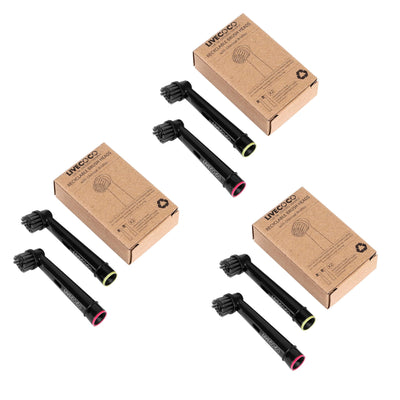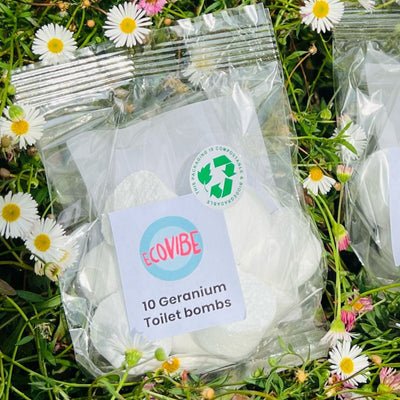How Often Should You Change Your Toothbrush?
What is the first thing you do after waking up?
Most people’s answer to this question differs, but a large number end up with some variation of brushing their teeth. Similarly, if we were to inquire about people’s morning routines, most would include brushing their teeth as an essential part of starting their day.
Our relationship with our toothbrushes, thus, is very important. If we like it or not, we’re forced to see them every day. Our interactions are so regular that most of us take for granted all that these heroes do for us. Of course, they keep our teeth rot and plaque-free so that we can generously use our smiles to spread love and kindness in the world. They also fight numerous bacteria and germs that we have collected in our mouths to keep our bodies safe from dangerous diseases. Therefore, in more ways than one, these superheroes are the only thing keeping us from falling into the terror of bad oral hygiene (and keep us from spreading this terror through our bad breath.)
While these heroes do so much for us, we do so little for them. In most cases, these heroes sit on the sink and are never given a second thought. Like superman, toothbrushes also only seem invincible. The kryptonite, in their case, is wear and tear, which makes them lose much of their effectiveness. Frequent use leads to frayed bristles, which—according to most studies—inhibit a toothbrush’s ability to remove germs and plaque. Moreover, sitting at the sink for a long time means that toothbrushes are bound to collect germs that are hard to remove. Using such brushes and not changing them soon enough can make you prone to decay as well as diseases, and you should change your toothbrush often enough to keep yourself safe from all kinds of oral concerns.
But how often is “often enough”?
We hate to sound cliché, but "it depends." They say it's always the right answer to any big question, but it still suffices for small ones like when to change your toothbrush. While the general answer is three months, it does change from person to person. The American Dental Association and the Oral Health Foundation both agree that three months is the right time for most people to change their toothbrushes. However, this period might be longer or shorter for people depending on several factors discussed below:
- When did you last get sick?
If you haven’t gotten sick recently, you’re allowed to fully utilise that three-month mark. But if you’ve recently gotten sick, you should probably get rid of your toothbrush. When we’re sick, our mouth is full of unwanted and dangerous bacteria or fungi. Brushing during that time can leave those germs on unreachable corners of your brush, which are hard to remove. If you choose to use that toothbrush, you’re putting yourself at risk of ingesting that bacteria again and being infected. Of course, no one wants to get sick twice within a few weeks.
- How have you maintained your toothbrush?
If you’re one of those people whose toothbrushes lie open on the sink, you should change them more often. The bathroom is a cesspool of all kinds of bacteria and leaving your toothbrush in the open means you're collecting them. You're even more at risk if your brush is placed in a warm bathroom corner. Germs in those places germinate and reproduce faster. Thus, if you keep your toothbrush in a warm corner of your bathroom, you should change it more often than every three months.
Bonus: How can you maintain your toothbrush correctly?
Of course, try not to keep it on the bathroom sink. If it is possible for you, get a sealed container and keep your brush in there. You should also try to keep it away from warm or damp places, and always try washing it thoroughly to not leave any bacteria or fungi on it to grow.
- How have you used your toothbrush?
Yes, the way you use the brush also affects replacement time. There are 2 things to consider here:
How hard do you brush?
If you’re one of those people who apply too much pressure, you’re going to need to replace your brush quickly. Brushing too hard means your bristles are going to get frayed sooner and the effectiveness of your toothbrush will suffer. Apart from toothbrush health, you should still not apply too much pressure as it is often counterproductive.
How long do you brush?
Like the pressure being applied, the duration of brushing also affects the bristles and makes them more likely to be frayed. Once they get frayed, you’ll need to replace them sooner. It is important to note that brushing for too long isn’t necessarily counterproductive, but anything more than 2 minutes isn’t sure to get you better results. If you think brushing for 5 minutes consecutively will remove all the plaque from your teeth that is just not true.
If you’re thinking of changing your brush, you should examine its health. If you fail to find any spots or marks of bacteria or fungi, you’re good to go. Of course, many bacteria cannot be seen so you should not delay replacing your toothbrush for more than three months. Moreover, you should regularly check the bristles of your toothbrush to ensure that they aren’t frayed and will be able to carry out their task easily.
What happens to the toothbrush I throw away?
Well, unfortunately, that toothbrush will probably end up somewhere in a landfill. Most toothbrushes are not recyclable, and if you’re concerned about the environment, we recommend you choose LiveCoco’s recyclable bamboo toothbrushes. These toothbrushes ensure that every time you replace a toothbrush, there is less wastage. Moreover, the wastage that you’re causing is also biodegradable. LiveCoco has many options to choose from, including ones with charcoal bristles. You can check them out at www.livecoco.com and browse a range of recyclable options that best suit your needs.



